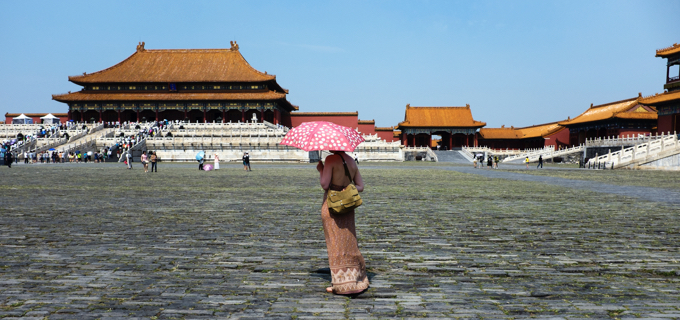Moving “Umbrella”: Identify Political Connections through Bureaucratic Transfers in China
SHARE THIS

| Xiaobo Zhang (Peking University) | |
| Thursday 11 May 2017 at 4:00 - 5:30 pm (Hong Kong time, GMT +8) | |
|
Rm 3301 (Lifts 17-18), Academic Building, HKUST |
Key insights
In an ongoing study, Xiaobo Zhang (Peking University) explores the economic impact of collusion in political and business spheres. The study looks at officials’ corruption trails by examining cross-regional investment flows associated with their transfers of officials from one city to another.
Zhang finds that in China, bureaucratic rotations and promotions across jurisdictions are common practice. “When officials are transferred to new places, it is hard for them to immediately establish trust with local businesses. Consequently, they tend to bring their trusted businessmen along with them.” In this practice, Zhang observes an immediate spike in investment flow—particularly in real estate and construction—driven by collusion rather than by better information.
Firms enjoy greater profitability when under the “umbrella” of connected officials, but are more likely to shut down after the official leaves office. Remarking on the implications of his findings, Zhang adds that “collusion crowds out new business and dampens innovations of existing firms.”
Abstract
Collusions between businessmen and officials rely upon strong trust. In China, bureaucratic rotations and promotions across jurisdictions are a common practice. When officials are transferred to new places, it is hard for them to immediately establish trust with local businesses. Consequently, they tend to bring their trusted businessmen along with them. This paper studies this phenomenon using two unique administrative datasets, firm registry and bureaucratic promotion databases. We find an immediate spike in investment flow, particularly in real estate and construction industries, accompanying transferred officials. We show that the jump in investment flow is mainly driven by collusion rather than by better information. Firms investing in the new places following the transferred officials enjoy greater profitability when their “umbrella” (connected official) is in office, but are more likely to shut down after the “umbrella” leaves office. The collusion crowds out new business and dampens innovations of existing firms.
About the Speaker
Xiaobo Zhang is a distinguished chair professor of economics at the National School of Development, Peking University. His research fields include Chinese economy and development economics. He has published widely in top economics journals, such as Journal of Political Economy, Journal of Development Economics, Journal of Economics Perspective, Journal of International Economics, and Journal of Public Economics. His recent books include Governing Rapid Growth in China: Equity and Institutions, Regional Inequality in China: Trends, Explanations and Policy Responses, Narratives of Chinese Economic Reforms: How Does China Cross the River? Oxford Companion to the Economics of China, and China Regional Innovation Report (in Chinese). He is a Co-Chief-Editor of China Economic Review. He received Sun Yefang Prize for Economics Research in China (the most prestigious award in the field of economics in China) and Zhang Peigang Development Economics Outstanding Achievement Award.
Get updates from HKUST IEMS






